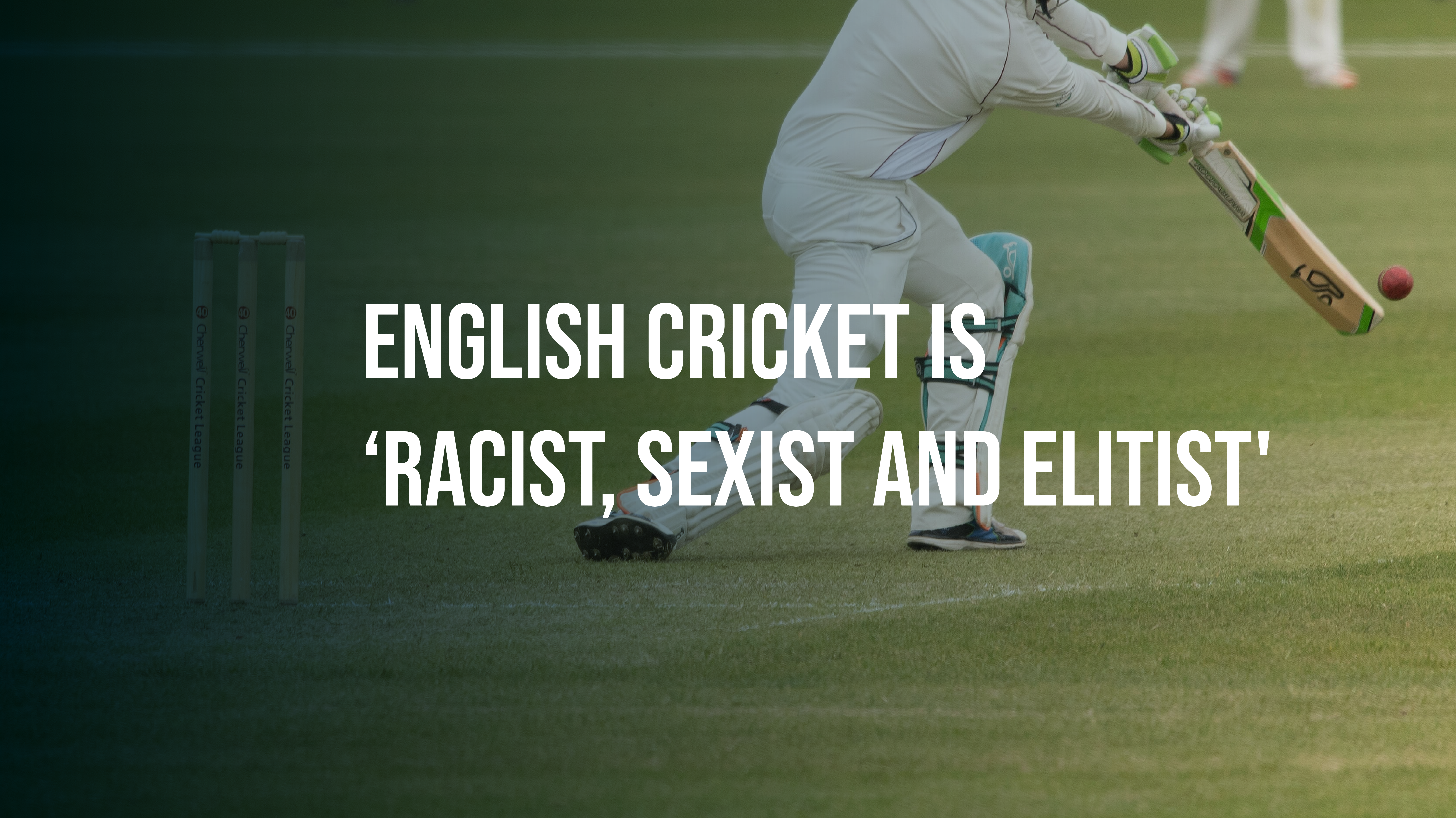
Unveiling the Truth: English Cricket Confronts Its Deep-Seated Issues
In a ground-breaking report published by the Independent Commission for Equity in Cricket (Icec), English cricket is exposed as a realm marred by racism, sexism, and elitism. The report drew on evidence from more than 4,000 players, coaches, administrators and fans. The findings of this landmark study shine a much-needed light on the darker aspects of the sport, unveiling the systemic biases that have long prevailed within its structures. The revelations demand immediate attention and action from cricketing authorities and fans alike.
Whilst The England and Wales Cricket Board responded to the report by issuing a unreserved apology for its failure to adequately tackle discrimination, in this article, we delve into the key findings of the report and explore the 44 recommendations for English cricket to rectify in the next 3 months.
The Ugly Truth
The report, which has sent shockwaves through the cricketing community, pulls back the curtain on the discrimination and inequality faced by individuals from marginalised communities within English cricket. The findings reveal a sport struggling with its diversity and inclusivity, pointing to a culture that hosts racial and gender biases.
1) Racism: The report highlights numerous instances of racism, both overt and covert, that exist within English cricket. It exposes the barriers faced by players from ethnic minority backgrounds, including limited opportunities for advancement, unequal treatment, and systemic prejudice. The lack of representation at various levels of the sport is also a concerning factor, as it fails to reflect the multicultural society that cricket is a part of.
2) Sexism: Gender disparities and biases are also laid bare in the report. Female players and staff encounter unequal pay, limited career progression, and an overall lack of support and investment. Women’s cricket continues to be undervalued and overshadowed by its male counterpart, hindering the growth and development of the women’s game.
3) Elitism: The report identifies elitism as a major hurdle to inclusivity in English cricket. The sport has long been associated with privilege and class, with many opportunities and resources favouring those from privileged backgrounds. This perpetuates a cycle where access to the sport is limited for individuals from less affluent communities, further exacerbating the lack of diversity at all levels.
4) Culture: The were reports of a “drinking and puerile lads’ culture” across the sport that puts women at the risk of unwanted attention, and acts as a barrier to the inclusion of Muslim communities.
Nicky Wright, our Diversity Jobs Group MD, recently shared her views from a personal perspective on the “Sticky From The Inside” podcast that shockingly correlates with this report, “My son, who is 13, goes to a state school, and cricket is not on their school curriculum. But he is a really talented cricketer. However, the private school, over the road from his state school has cricket as part of their school curriculum. Again, from a social mobility point of view, how is that fair? And that’s still where we’re at sadly”.
What now?
The revelations presented in the report are undoubtedly disheartening. However, they also serve as a catalyst for change, urging English cricket to confront its deeply rooted issues head-on.
The Icec’s 44 recommendations range from the modest to the radical. The report has also called for an independent regulator, to ensure the ECB no longer has conflict of interest in acting as both a promoter and regulator. The future requires a multi-faceted approach encompassing policy changes, educational initiatives, and a collective commitment to inclusivity. Some recommendations include:
1) Policy Reforms: Cricketing authorities must implement comprehensive policies and guidelines to tackle discrimination and bias. This includes strict enforcement of anti-racist and anti-sexist measures, diverse recruitment strategies, and the establishment of transparent complaint mechanisms. These policies should prioritise representation and provide equal opportunities for individuals from all backgrounds.
2) Education and Awareness: Creating awareness about the issues of racism, sexism, and elitism is crucial. Educational programs should be implemented at all levels of the sport, fostering a culture of respect, inclusion, and understanding. This should include mandatory training on diversity and unconscious bias for players, coaches, administrators, and support staff.
3) Grassroots Development: Efforts must be made to make cricket accessible to a broader range of communities. Increased investment in grassroots development programs, particularly in underprivileged areas, will provide opportunities for talent to flourish. Partnering with community organizations and schools can help break down barriers and encourage participation from diverse backgrounds.
4) Promoting Women’s Cricket: Women’s cricket deserves equal representation, support, and investment. Cricketing authorities should work towards bridging the gender gap by providing equal pay and resources, boosting media coverage, and promoting women’s competitions alongside the men’s game. Encouraging female representation in leadership roles within cricketing organizations is also crucial for driving meaningful change.
The release of the groundbreaking report on English cricket’s deep-rooted issues has cast a harsh light on the sport’s failures in tackling racism, sexism, and elitism.
Who we are?
Diversity Jobs Group is a suite of 1O Diversity and Inclusion Job boards. Our focus is to engage and attract talent from marginalised and underrepresented communities, providing companies with a broader choice of exceptional talent, and allowing you to grow your organisation through diverse choices.
We provide job seekers, with bespoke and safe job boards that embrace diversity by building supportive communities that grow in confidence and representation.
Posted by Diversity Jobs Group
Find us on 

















